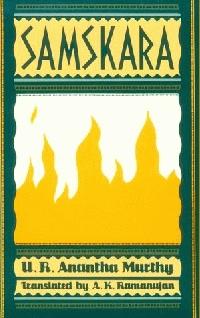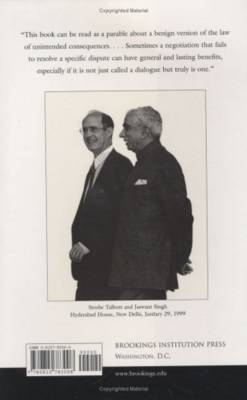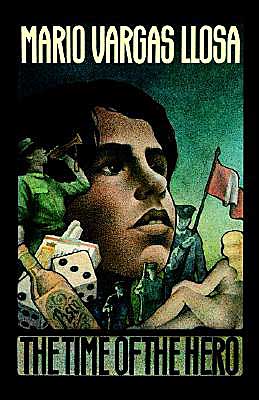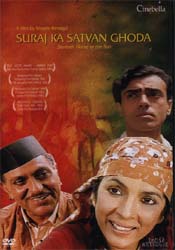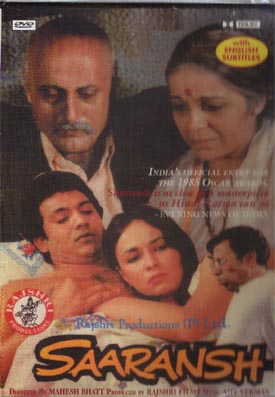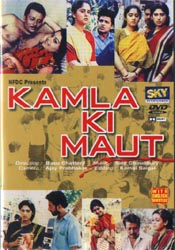Tuesday, December 13, 2005
India: A million mutinies now
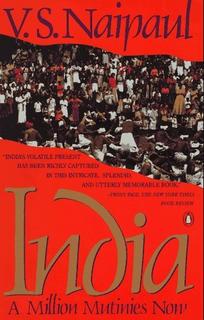
Who can tell,analyze and give various perspectives about charu mazumdhar, Periyar,bal thackrey, ambedhkhar, mahatma gandhi,Namdeo Dhasal, bindralwale and many more in the same book?.Only Naipaul can do that.
When i started reading the book I was still thinking of how to write a review for 'India: A wounded civilization', cause i was so overwhelmed by that book.He questions the basic indian pshyce and shakes the foundation of your thoughts.I was first skeptical of venturing into another naipaul book when i am still not completely out of his previous book.But unlike the wounded civilization, million mutinies wasn't that overwhelming.In wounded civilization, it was all naipaul's perspective, but whereas in million mutinies, naipaul interviews lot of people and there thoughts are are echoed by naipaul.Naipaul does put his opinions also but very less compared to wounded civilization.
I dont know how to classify this book, this can be called a travelogue, cause naipaul travels to bombay, chennai, calcutta, lucknow, kashmir and punjab.He gives us a background of the place and makes us meet various peoples from these regions giving a brief idea about these places.
But naipaul does not stop with a travelogue description, he goes about his business of analyzing and providing critical views on various subjects.We meet different peoples in these regions.A shiv sena party guy and a muslim who lives in a bombay slum.A mylapore brahmin and K.Veeramani of the anti brahmin Dravida party, journalist, politicians, publishers and many more.
Talking about the dravidian movement he comes to MGR and says this.
It was said that at his death some 18,000 files were waiting for his attention.One of the things he had done was to abolish Madras corporation.So madras was in a mess,with mounds of rubbish everywhere.It was as though this too, was part of the revolt of the south,this violation of the old ideas of purity.
Through these people he gives an idea about what is compelling these peoples to do what they are doing. what is going on in there mind.One important guy that he talks to is Mr.vishwanath who is the propreitor of women's era magazine.During naipaul's discussions with him, vishwananth utters some strong statements
The hindu religion is a conglomerations of faiths,500 religion or faiths.We've had reformist movements against orthodoxy.what happens is that every reform movement degenerates into a sect - the lingayats, the arya samajists everybody.Buddha rebelled.Mahavir , the founder of jains,rebelled.Guru Nanak rebelled.It is a long list.They rebelled and degenerated into sects and became as orthodox as the previous orthodox people.
I think religion is the greatest curse of mankind.It has killed more people, destroyed more property, than any other thing.Even today- northern ireland, middle east, hindu,muslims,sikhs, all fighting each other in india.The oldest profession is not prostitution.It is priesthood.
At first many of the topics that are covered seem unrelated.It looks like more of a political view of things happening all around india.But naipaul beautifully sums them up in the end.He looks at everything as india trying to identify itself, a country mutinying against its cultural baggage and past.The sign of change happening, the sign of growth and progress.
To most what happened in the punjab was a pure tragedy.. it seemed that sikhs bad brought this tragedy on themselves,manufacturing grievances out of their great success in independent india.It was as if there was some intellectual or emotional flaw in the community, as if in their fast ,unbroken rise over last century there had developed a lack of balance between their material achievements and their internal life, so that though in one way so adventurous and forward looking in another way they remained close to their tribal and country origin.
Dalip a reporter.
Because i was not impressed by bindranwale.I knew he was not guru gobind singh.I knew he was just being used by indira congress to harm akali party in punjab.He was an ordinary man on whom greatness was being imposed.why should the community accept him?.Why should general shabeg singh not judge him as a man?.why were people just impressed by his angry looks and the armed men around him?.He was not an intellectual, not a thinker, and he was not a pious man.
Talking about the british scholor he quotes from one of his letter...
Great 18th century british scholor Sir william Jones wronte in 1786 to his friend.I shall never cease thinking,that rational liberty makes men virtuous; and virtue happy:wishing therefore ardently for universal happiness,I wish for universal liberty.But our observations on Hindu is too just;they are incapable of civil liberty;few of them have an idea of it;and those who have do not wish it.They must, they must be ruled by an absolute power and I feel my pain much alleviated by knowing the natives themselves... are happier under us than they were or could have been under the sultans of delhi or petty raja.
"They are incapable of civil liberty.They must be ruled by an absolute power".The words expressing the imperial views of that time.But the sad thing is most of the countries below the equator havn't come to terms with not being ruled by an absolute power and civil liberty.
Naipaul talks a lot about Sir william jones who came ot india to make a fortune of 30,000 pounds and made 50,000 in 11 years.He also says he gave back to india a lot. William jones seems to have interacted with many sanskrit scholors and translated many plays like kalidasas's shakuntlam.
The point that made the biggest impact for me was when naipaul said that if not for people like sir william jones, he who was growing up in trinidad before independence could have never had a chance to read about a book like shakuntalam, cause sanskrit was supposed to be the language of gods and only priests and upper caste people could read it.
Another great example of his interesting observation skills.Gandhi the upper caste guy is bare bodied or scantly clad in the pictures where as low caste ambedhkar is in coat and suit.That simple observation makes you think so many things.The insecurity of a group, the way the society looks at them etc.
The book starts in bomabay and after reading few pages, i started seeing the similarities between it and sukhethu's Maximum city.I just wanted to make sure my assumptions were true and i saw this sukethu's interview.
Who provided literary inspiration for you and the book?Joe Mitchell’s Up in the Old Hotel and Joseph Liebling taught me how to write about cities. Plus Ryszard Kapuscinski, V.S. Naipaul — I mean, lots of Naipaul. I read him like a textbook. I very much disagree with many of his political viewpoints, but that whole arc he has in the three nonfiction books on India — An Area of Darkness, A Wounded Civilization, and A Million Mutinies ...more
Another great book by the master.
Links:
http://naipaul.blogspot.com/
Labels: book, english, india, Naipaul







